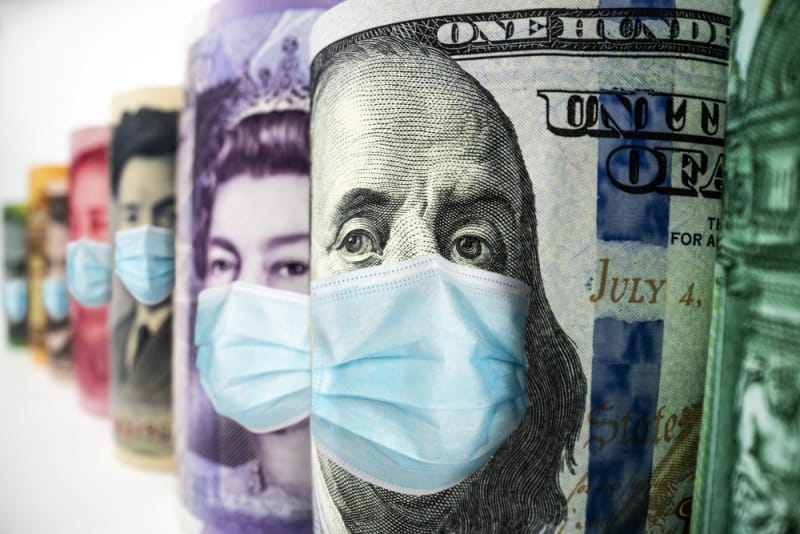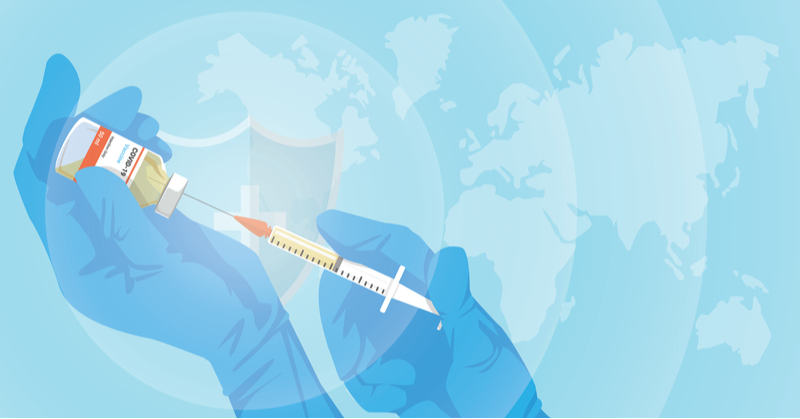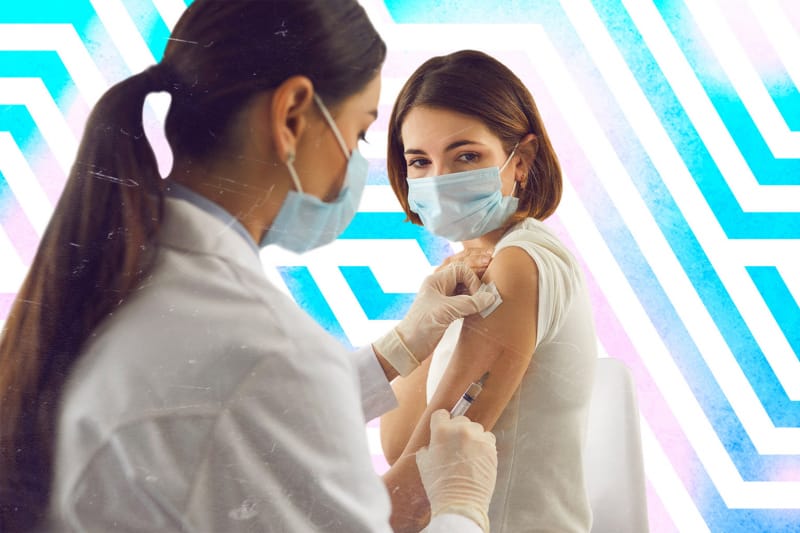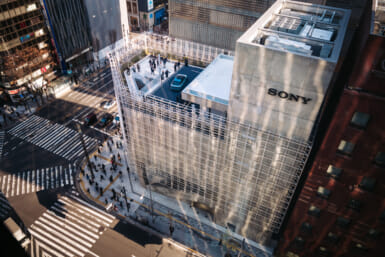Since the novel coronavirus sprung silently from its epicenter in Wuhan a year ago, it has metastasized to almost every corner of the planet, ratcheting up 100 million recorded cases of Covid-19 in the process and throwing into question the lives of carefree abandon we once took for granted. Since then, we’ve looked to the inevitable vaccine as the Deus ex Machina which brings this madness to an end.
For much of last year, even the most optimistic experts suggested a vaccine was “at least twelve to eighteen months away.” Until all of a sudden, it wasn’t.
Major biopharmaceutical companies mobilized resources, poured hundreds of millions of dollars into their vaccine programs, received yet more financial injections from national governments, and before 2020 had bowed out, had begun shipping their prized products across the world.
Economically robust nations from North America to Europe, from Russia to China, have their vaccine programs well underway, inoculating first responders, politicians, the old, the medically predisposed, and (hopefully) soon after, everyone else. Even developing nations such as India, Indonesia and Mexico have initiated their own vaccine rollouts. But Japan, which remains upbeat about hosting the Olympics in six months, is still left wanting.
How has Japan fallen so far behind in the global vaccine race? Here’s what we know so far.
(Time of writing: February 1, 2021)

Japan’s Biopharma Outmuscled
As of late-January 2021, at least seven global vaccines have been approved for emergency use or staggered public rollouts: Oxford University and AstraZeneca’s joint efforts in the UK; the transatlantic partnership of BioNTech and Pfizer from Germany and the US respectively; Russia’s Gamaleya Research Institute; US-based Moderna Inc.; and the Chinese trio of Sinopharm, Sinovac, and CanSino Biologics. Several more, including those from Novavax and Johnson & Johnson, are likely to hit the market soon.
According to Bloomberg’s Covid-19 tracker at the time of writing, over 95 million Covid-19 vaccine doses have been dished out across 60 individual countries – though data from the historically tight-lipped China, and Russia, who authorized the Gamaleya vaccine following an initial trial conducted on only 76 people, are possibly underreported.
In any case, it’s jarring that few of those jabs have taken place on Japanese shores. And those who have been vaccinated in Japan, beyond clinical trial patients, have done so under dubious legal circumstances, such as the reports of Japanese corporate bigwigs using an unapproved Chinese vaccine to inoculate themselves and their immediate families.
A History of Vaccine Distrust in Japan
Part of Japan’s Covid-19 vaccine sluggishness can be traced back to its murky vaccine history. The Japanese government was pummeled by vaccine-related lawsuits in the 1990s which sought damages for a rush of side effects caused by MMR shots. Public hysteria followed and by 1993 the program was cut, causing a subsequent lull in Japan’s vaccine production. In 2013, a program to administer the HPV vaccine to teenage girls was also pulled as a result of side effects, plummeting the usage rate to less than one percent from a high of over 70%.
Yet the roots of the issue may run deeper still – as disease ran rife in the war-torn 1940s, occupying US forces instated a form of vaccine conscription. Though the campaign was largely successful, 68 children lost their lives to a faulty diphtheria shot sowing the seeds of trepidation towards foreign medicine. As recently as 2015, The Lancet medical journal found Japan to be among the nations with the lowest public confidence in vaccine safety and effectiveness.
An overzealous media in Japan has been quick to compound these fears with foreboding vaccination headlines and horror stories of foreign PTNCs manipulating data and flirting with illegitimate business practices. The case of a Western-developed rheumatoid arthritis drug, Leflunomide, which was attributed to the deaths of nine people in Japan in the early 2000s (a stark contrast with results in the West), is one such story to have resurfaced in recent months.
Further stymieing the Covid-19-vaccine charge is a lack of consolidation among Japan’s current pharmaceutical companies, meaning their human and financial resources are simply dwarfed by global competitors. As of December, AnGes and Shionogi & Co. (in partnership with the National Institute of Infectious Diseases) were the only Japanese contenders – of 50-plus worldwide – in the clinical trial phase.

The Covid-19 Vaccine Debate Rages On
If the polls are to be believed, up to 70% of Japanese residents are willing to get a Covid-19 shot – more than 10% of the prospective number required to achieve herd immunity.
But the debate is still a hotly contested one. According to The Japan Times, a small group of local doctors expressed concern about state-of-the-art mRNA vaccines – which carry the virus’s genetic code to blood cells in order to initiate an immune response – citing potential long-term side effects of vaccines utilizing this technology. While on a more anecdotal level, small groups of stone-faced anti-vaxxers have recently taken to the streets of Tokyo to herald the dangers of injections.
Vaccine efficacy across the board is enough of a mixed bag to stoke the flames of public fear. Late-stage trials in Turkey, Indonesia and Brazil of the Sinovac-developed vaccine (CoronaVac) showed 91.25%, 65.3% and 50.4% efficacy, respectively. While the AstraZeneca shot ranges from 62-90% effective. Japan’s current contracts are with the latter, along with the so-far more reliable Moderna and BioNTech Pfizer vaccines coming in at 95% efficacy rates apiece.
Better Late Than Never?
In late January, Prime Minister Yoshihide Suga told his House of Councillors he expected Japan to secure 310 million doses of Covid-19 vaccines, many of which will be delivered over the course of 2021.
Japan will begin by inoculating first responders, the elderly and those with underlying conditions by late-February – permitting cabinet approval of the currently under-review Pfizer shot (a necessary hurdle for all foreign pharmaceuticals) – before rolling it out to the public in May, two months before the currently planned Olympics opening ceremony. Well aware of potentially sketchy public opinion, Suga maintained the government would provide “correct information, including on adverse reactions and effectiveness, based on scientific knowledge.”
Japan has secured doses for 72 million people from BioNTech and Pfizer, to be supplied this year, with another 48 million to follow – the 120 million total doses is enough to cover 60 million people. The government also has agreements with AstraZeneca and Moderna to immunize 60 million and 25 million people, respectively. To speed up the supply chain, AstraZeneca will soon begin producing the vaccine in Japan through several local drugmakers (up to 90 million of the 120 million secured doses; the remaining 30 million are set to be imported by March).
These will largely be covered by the 4.3 trillion yen delegated to the healthcare system from the third, and most recent, coronavirus supplementary budget (totaling 19 trillion yen). The government also amended the national vaccination law, ensuring a coronavirus vaccine would be free for all residents.
AstraZeneca to produce 90 million COVID-19 vaccine shots in Japan https://t.co/UeN5LDyyfw
— Healthcare-Global😷 (@HealthcareGlob1) January 31, 2021
Even if Japan’s aspired-to timeline is met, and the general public can begin vaccinations by May, those over 65 – a quarter of Japan’s 126 million residents – will receive preferential treatment. The rest of us are realistically looking to 2022, Olympic Games or not.
Don’t Hold Your Breath for Herd Immunity
“We are not going to achieve any levels of population immunity or herd immunity in 2021,” warned WHO chief scientist, Soumya Swaminathan, at a media briefing on January 11. Furthering the devil’s advocate position, we really don’t know the long-term effects of a vaccine that’s gone from conception to market in mere months.
But what the rollout of Covid-19 vaccines has given us is hope we can return to an existence not determined by an irrepressible and invisible enemy. Though it’s late to the game, Japan is on the right track. And we can at least take solace in that.
For more information on Covid-19 in Japan:









